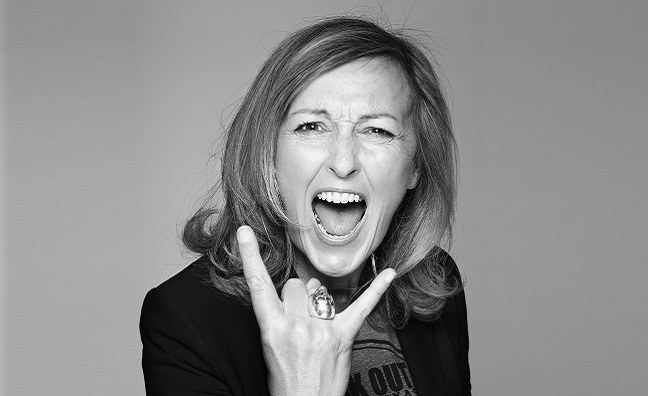Dr Julia Jones, aka Dr Rock, on how the industry is missing a trick by not facilitating the use of music in health settings...
Did you notice that music bounced to the front of the global social media stage as soon as lockdown commenced? Tik Tok music videos, Italians on balconies, and musicians and choirs worldwide. Music cannot be quarantined. Our ability to appreciate music is a vital part of being human. We’re born with automated brain responses to music. Our deep emotional connection with the songs we know and love lasts a lifetime, even in late stage dementia and they play us out during our funerals.
However, even during all this musical activity there was one place where these songs couldn’t venture – in all the online fitness and health classes. Even Joe Wicks, the king of fitness, is unable to use the music we know and love in his online workouts, because a simple suitable licence doesn’t yet exist. George Ezra’s mum called her son recently to ask him to urge his record company to give Joe special permission to use his music. There’s also a noticeable absence of music in NHS hospitals and care homes due to the lack of a simple and affordable single licence. Based on the science that I’ll explain below, I believe this situation is compromising the success of wellness programmes, holding back the health of the nation and exacerbating the problem of underlying health problems that have resulted in tens of thousands of deaths in the UK during the global pandemic.
We need to accept that our approaches to health simply haven’t worked and are unlikely to do so. We need to take a radically different approach and we need to do it fast. Fitness industry revenues have continued to climb, but so have average waistlines, because these figures include people who pay gym membership but never go there, and buy all the fitness gear we now wear as everyday normal clothing. It’s time to take drastic action. The UK’s poor obesity and diabetes figures have contributed to us witnessing the highest death rate in Europe. So if the standard promotion of nutrition and exercise doesn’t convince the nation to move more, what do we try next?
Well, science shows that music has very powerful effects on the brain as well as the body. It’s no coincidence that you see sports stars and athletes wearing headphones during training and competition warm ups. The elite sports world knows that music is an incredible tool. Music motivates us to move (our brain immediately initiates foot tapping to music), reduces feelings of pain and fatigue, and turns a clinical environment into a relaxed and fun experience. But here’s the critical point, research consistently shows that music we know and love amplifies the effects in our brain. Therefore, the hit songs we’ve grown up with influence us more than ‘soundalike’ versions. That’s why you say “I LOVE this song!”. Yet health professionals delivering online classes are only allowed to use “licence free” music or soundalike re-recordings of well known songs. I want the real thing and so do all other human brains! We need to simplify access to hit songs for fitness and health professionals.
Online is the new offline. We’re all now doing lots more online and will continue to do so. That includes workouts. It’s the easiest way to engage people. We need a new music licence that health professionals can easily buy, so they can legally and affordably use hit songs in their work. Withholding hit songs from health professionals is like giving Usain Bolt a pair of wellies to run a 100m race. We need to give fitness and health pros the best possible kit to maximise their success in engaging the nation to move more – and that includes themusic the nation loves.
So I’m calling out to the UK public and decision makers to urge the music industry to quickly create two new music licences: one that health and fitness professionals can buy to use music in online classes and one that the Department for Health can buy to use music across the NHS. I truly believe that this will not only help transform the health of the nation but also provide a new health revenue stream for the music industry, while we wait to see what the shape of live music will look like in our future socially distant world. There’s a growing number of people within the music industry who want to see this happen, but these conversations are slow. Let’s act fast. Lives are at stake.











